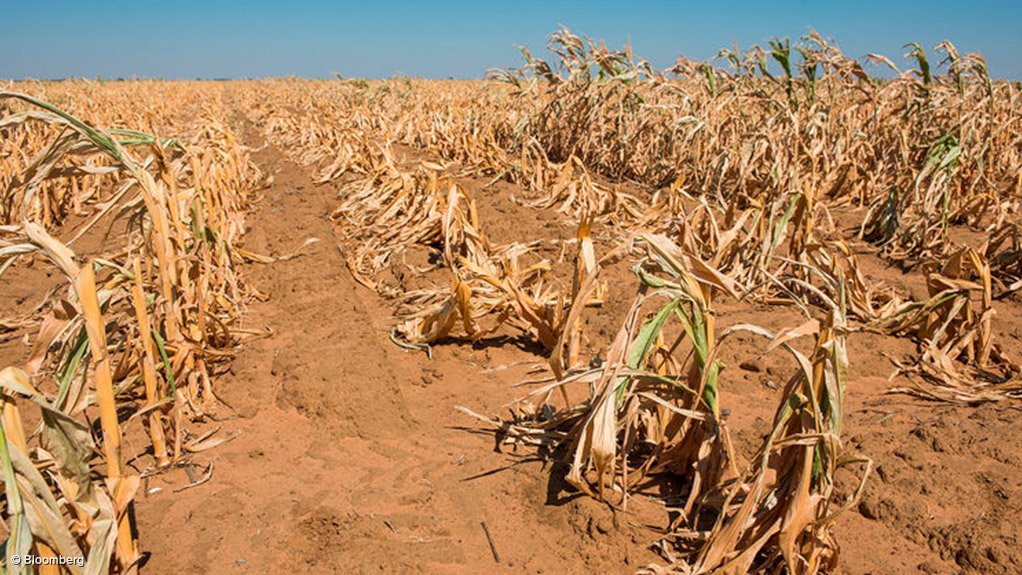/ MEDIA STATEMENT / The content on this page is not written by Polity.org.za, but is supplied by third parties. This content does not constitute news reporting by Polity.org.za.
The Organisation Undoing Tax Abuse (OUTA) have finalised its Drought Levy submission and comments to the City of Cape Town and aside from the numerous concerns raised therein, believe the City’s proposed Drought Levy has been the result of failed cooperative governance and a lack of the City’s ability to hold the national authorities to account.
“There appears to be a strong undercurrent of political point-scoring around the Cape Town water issue, which does not serve the public interests, and we thus urge the different levels of government to work together to resolve this urgent matter.” says Julius Kleynhans, OUTA’s Portfolio Manager for Water.
“The failure of cooperation between the City and the national Department of Water and Sanitation (DWS) has given rise to the City having to resort to a fiscal ‘self-help’ process, which we believe has serious unintended consequences and sets a dangerous precedent for future governance on this matter for other municipal revenue generating ‘opportunities’.”
While OUTA is extremely sensitive to the water crisis at hand, it strongly opposes the imposition of the proposed drought levy, urging the City to engage the Western Cape provincial government and, essentially, the DWS, in finding realistic and long-term solutions. “We believe that ultimately, the legal responsibility for ensuring a bulk water supply for the City is the responsibility of the DWS and that the City should thus act without delay to ensure delivery by DWS.
Setting up a new municipal tax or surcharge requires a clear legal process, which the City does not appear to have followed. We are also not convinced, on the basis of the available information, that this is an equitable way of paying for the necessary services,” Kleynhans added.
While the City’s proposed water projects may help alleviate the current crisis, OUTA’s concern is that the City’s proposed Drought Charge does not address the assigning of correct funding responsibilities and obligations to different tiers of government. “Hitting the ratepayers may be the easiest short-term solution, but we do not believe it is the legally or morally correct one. Holding those authorities who are responsible for water supply to account is the correct route to follow,” said Kleynhans.
“We commend the City for its water savings initiatives and the drive to get the region’s population to drastically reduce water consumption, and in so doing, we urge the city to adopt a punitive water use pricing policy aimed at applying substantive and exponentially higher consumption tariffs to those who exceed the proposed maximum quotas, thereby raising their revenue shortfalls whilst at the same time, being more effective in changing the water consumption behaviour of all users.
The proposed drought levy falls well short of the behaviour change and revenue model required by the city in this regard, as well as allows national Government to fall foul of their responsibilities to addressing the urgency required of them,” adds Kleynhans.
While the City of Cape Town and its surrounding region is the most publicised water crisis currently attracting attention, it is not the only settlement suffering from a desperate water shortage. Similar crises in other South African towns should not go unresolved because they are less visible and their residents powerless. Instead, the City of Cape Town should be leading the way in negotiating for national solutions to this problem.
OUTA is a proudly South African non-profit civil action organisation, supported and publicly funded by people who are passionate about improving the prosperity of our nation. OUTA was established to reintroduce accountability to government and to challenge the abuse of authority with regards to the use of tax revenues.
OUTA is a proudly South African non-profit civil action organisation, comprising of and supported by people who are passionate about holding government accountable and improving the prosperity of South Africa.
Issued by OUTA
EMAIL THIS ARTICLE SAVE THIS ARTICLE ARTICLE ENQUIRY
To subscribe email subscriptions@creamermedia.co.za or click here
To advertise email advertising@creamermedia.co.za or click here











